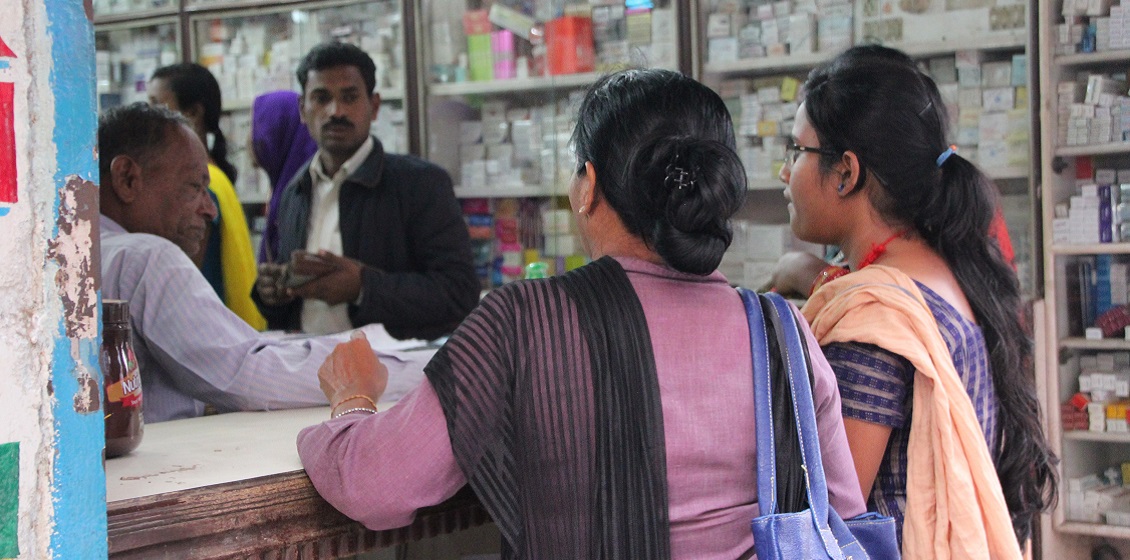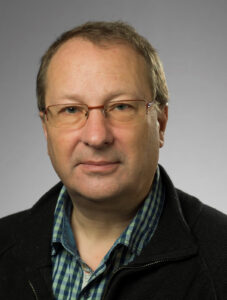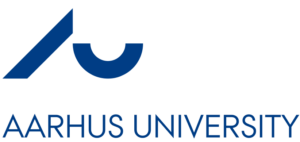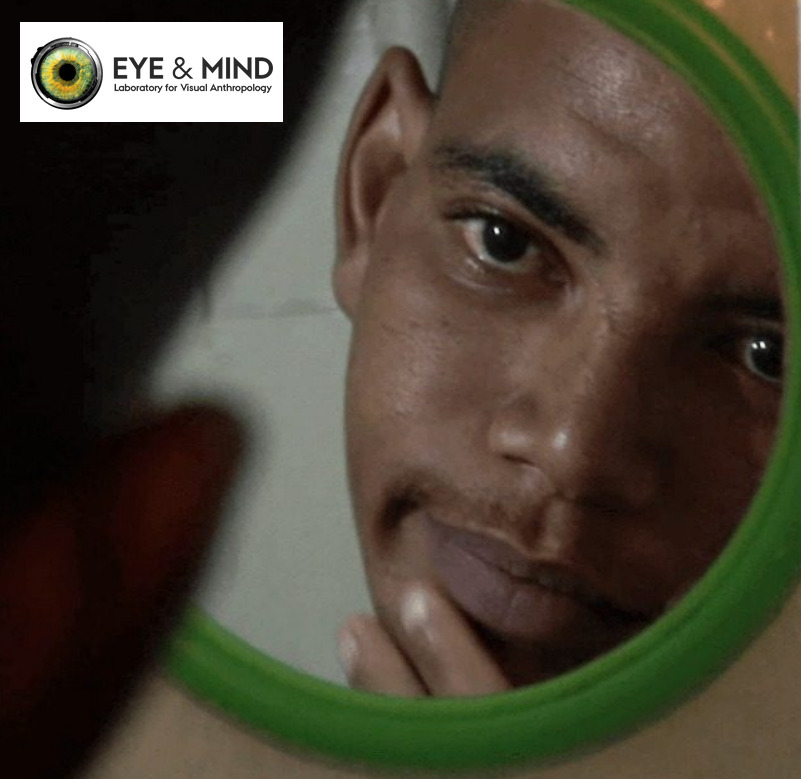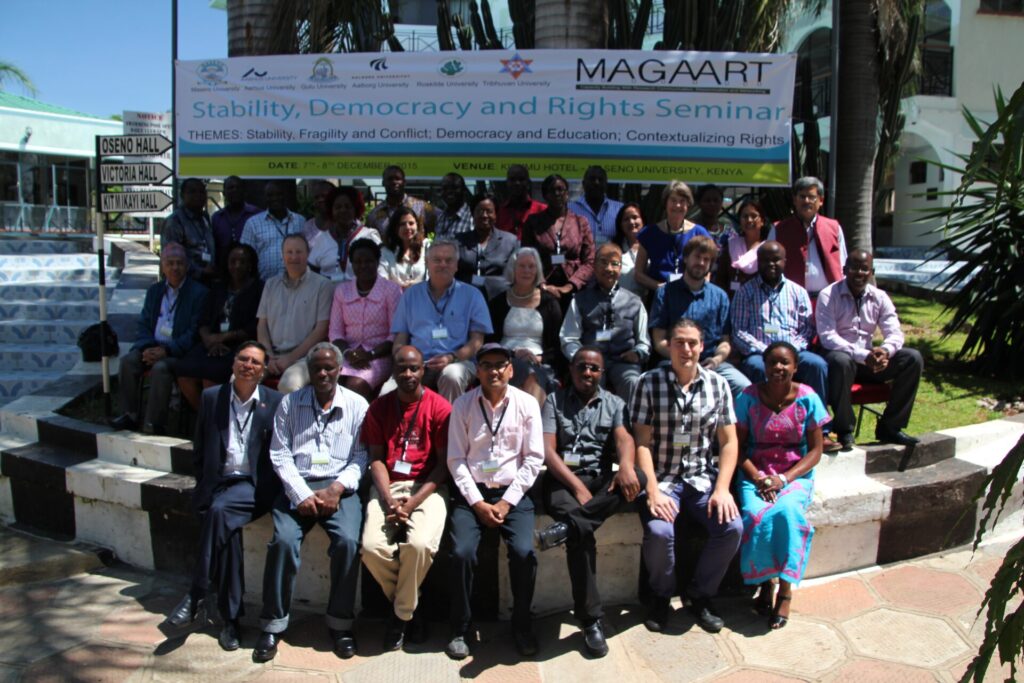Research collaboration is capacity building in itself, says Professor Jens Seeberg, Aarhus University.
Every university on the globe has a constant need of capacity building. That is certainly also the case in Denmark.
”Research collaboration is capacity building in itself”, as Professor Jens Seeberg puts it. He is a medical anthropologist from Aarhus University, and he has worked with a series of development projects through three decades since he came to India for the first time in the late 1980’s to do fieldwork about mental illness at Indian hospitals and temples.
”Interesting research develops my own competences, my own knowledge. I am developing my competences a lot when I am collaborating with colleagues in Nepal and India, and I believe they are doing the same. But this also happens when I collaborate with good colleagues from Europa or America. You get a capacity gain from international collaboration – i’s always a good thing to collaborate with people outside your home environment”.
”So in many ways, capacity building is a wrong premise in a development context. It’s not only the partners from the South in a collaborative research project who shall develop their competences. It’s up to all of us. When the work has started, it doesn’t matter if you come from the South or the North. Research collaboration is capacity building – and capacity building is research collaboration”.
But Jens Seeberg who has worked as a research officer for the World Health Organization (WHO) and the Danish foreign ministry’s support to the Indian tuberculosis control program for several years before his current position at Department of Anthropology, Aarhus University, underlines that ”it’s also a fact that it’s more difficult for some countries than others to establish that kind of collaboration. Some countries, typically in the South, are much more dependent on funding from the outside than others”.
”There is a dependency built into the unequal global system of today that we have to be conscious about. We must not ignore it. On the contrary, we should every day try to minimize its negative consequences as much as possible through mutuality in our collaboration”.
Interdisciplinary work
For the last fifteen years, Jens Seeberg has worked his way from one collaborative research project to the next, several of them funded by FFU, the Consultative Research Committee on Development Research. Recently, he embarked together with a group of researchers from South and North on a large interdisciplinary project, funded by the Novo Nordisk Foundation (NNF). The focus of this project is antibiotic resistance in a context of labour migration in India and Nepal.
In recent years, Jens Seeberg’s primary field of study has increasingly focused on resistant tuberculosis and its spread in India and globally. He has conducted several projects, including one in collaboration with a local NGO. The focus has included the private health sector in the country which delivers around 80 percent of the health services. It is largely unregulated and is an important market for the large Indian pharmaceutical industry.
”Research is not interesting if it isn’t difficult. If not, there would be no reason to do research. In the field of antimicrobial resistance, ethnographic methods are very useful because they make it possible to handle complex research questions with many factors involved”.
”But all my projects through the last twenty years have been interdisciplinary and based on bringing different competences in play in collaboration with each other. In the latest project, I work with microbiologists, pharmacists, medical doctors and anthropologists with expertise in health, migration and labour. For me, the important thing is to combine a group with supplementary competences. Some come from the South, others come from the North, and we work to overcome the challenges that lie in the fact that some participants come from countries with less possibilities and less access to academic resources than others”.
”Of course, you should not make a premise for yourself in which you ignore differential access to resources. But still, the primary task is to identify the competences that are needed for a specific interdisciplinary project. I hope that I will be able to contribute – through my experience and large network – to identify the right people and make collaboration with new people work. It’s a good sign when a young researcher from the South who was a PhD in one project gets a postdoc position in another project through open competition”.
Young and old
A typical division of labour in these international collaboration projects within development research tends to be that data collection take place in the South. But it is poor collaboration to send data to the North and transform them into meritorious academic articles there. Jens Seeberg suggests a different pattern.
”To me, the division of labour is not only a question about South and North, it is also question of young and old. In the NNF project, seven persons are doing fieldwork in workplaces and data collection in tuberculosis clinics; two are based in Aarhus, two at a university in Delhi, two at a hospital in Delhi, and one in Nepal. All of them are postdocs or young researchers, and all originate in the South”.
”In this project, it’s planned that all postdocs shall have an opportunity to write one or more articles as lead author. I believe it’s important to make capacity strengthening a built-in feature of any project, but then again, the first author has to be the one who does most of the initial writing. It’s true that researchers in the South have not had the same access to publishing in academic articles as researchers in the North, and this is exactly the reason why such measures have to be built into the project. This also involves a focus on creating a conducive environment for mutual support and learning”.
Breaking the promises
A few years ago, Jens Seeberg was in charge of one of the ”BSU”-platforms supported by the Danish Foreign Ministry. ”Building Stronger Universities” is the name of an ambitious capacity-building effort with university partners in the South, and Jens Seeberg lead the platform that covered humanities and social sciences with partner universities in Uganda, Kenya and Nepal. The BSU-program is now in its fourth stage, and many things have been adjusted since the beginning.
”We had enormous challenges”, says Jens Seeberg. ”The management structure was unclear, and it created problem which were difficult to handle og resulted in random decisions”.
”The strength in the BSU program was intended to be long-term collaborative relationships, but in reality both Kenya and Nepal were dropped from the program for political reasons so the promised long-term perspective disappeared in these cases and it was difficult to sustain the initiatives that had been launched”.
One basic problem with BSU was, according to Jens Seeberg, that the participating institutions were not allowed to combine research and capacity strengthening activities even if well-designed collaborative projects form ”the most effective way to build capacity”.
”Again, meaningful research improves the competences of the involved researchers”.


